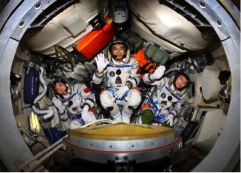In the wake of the successful landing of the Curiosity rover, China ramps up pressure on its own space program, leaping full-fledged into the space race–and looking as though it might actually win.
In the early hours of Monday, August 6, the country watched as a car-sized rover ended its eight-and-a-half-month journey with a safe, but intricately complicated landing in a gravelly crater of Mars. The rover, appropriately named “Curiosity,” is the product of a $2.5 billion mission and is cram-packed with ingenious instruments that will provide the best examination of the red planet to date. Curiosity is on the lookout for carbon-based particles .If it collects any, it may give humanity the first-ever evidence that life exists or has existed on other planets.
At touchdown, America was jubilant. News of the successful landing renewed faith in the often-criticized and budget-slashed American space program. John P. Holdren, President Obama’s science advisor, echoed the feeling at a press conference: “If anybody has been harboring doubts about the status of U.S. leadership in space, well, there’s a one-ton automobile-size piece of American ingenuity. And it’s sitting on the surface of Mars right now.” Curiosity’s presence on Mars affirmed, at least in terms of space exploration, the United States’ position as the world’s superpower.
But, just this June, China sent three astronauts (including its first female astronaut) into space to carry out its first docking mission. The mission, which was successful, is part of an ambitious and fast-paced plan announced by the Chinese government to establish a presence in outer space. China became one of only three countries to send a man into outer space in 2003. It held its first spacewalk in 2008 and hopes to place a man on the moon by 2016. By 2020, China says that it hopes to build a space station. The space race isn’t over yet – and now the US faces a new contender.
China has spent billions in the past decade in order to compete with the United States’ and Russia’s space programs. Its program, intimately connected to the Chinese military, is designed to use scientific, military, and industrial knowledge to win the space race. Its presence in outer space is both strategic to foreign policy and imperative for military purposes. In terms of foreign policy, China’s presence in space validates its economic, scientific, and technological strength and fully establishes itself as a major industrial power on the world stage. For military purposes, China has been investing a good deal of time and research into anti-satellite weapons and technologies – and the United States is utterly dependent on satellites to control our financial transactions, our communications, and various facets of our day-to-day lives. Additionally, innovation in space will benefit the Chinese at home. Pressure to develop new technology for the moon brought Americans innovations as various (and useful) as satellite TV, laptops, and Tang. Truly, a Chinese presence in space is just as much a statement to their power as it is a threat to our own.
To say that China is nipping at our heels in terms of space exploration would be vastly exaggerating the advancement of their program; its spaceflight accomplishments are roughly those of the United States and the Soviet Union in the mid-1960s. However, what is worth noting is that the pace of their program is abnormally fast – and the budget and support that they are receiving from their government is unimaginable.
There is some cruel irony to the landing of Curiosity on Mars. While NASA scientists celebrated the success of their ingenious engineering and the result of years of hard work, they were also struggling to cope with a $300 million (20 percent) budget cut for 2013. NASA has had to cope with political whiplash, as every four years brings another political agenda and another dream of conquest for outer space – George H.W. Bush promising to send astronauts to Mars, President Obama planning to send astronauts to an asteroid, and Newt Gingrich’s “moon colony” all being notable examples.
By contrast, China has the consistency that comes from an authoritarian military regime. The space program has the unquestioning and unlimited financial support of both the government and the people. And though the pace of their innovation is grueling, China has already kept on track with what they promised to do since 2003.
The space race hasn’t been won yet – not by a long shot. In fact, it’s only just beginning.


